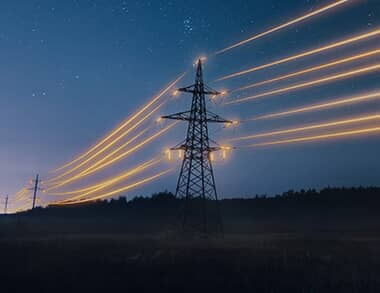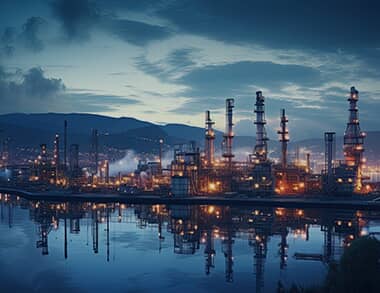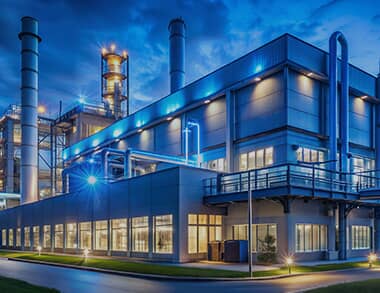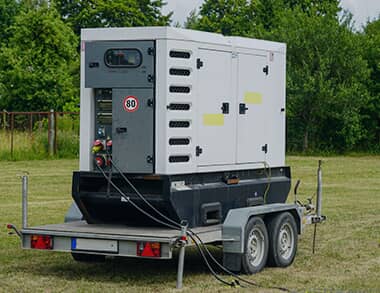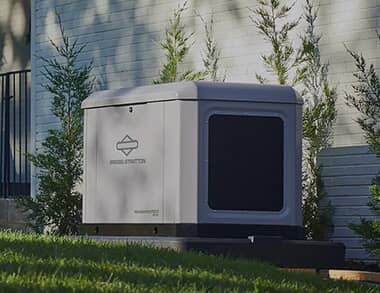Powering Your Bunker: Essential Considerations for Backup Power in Emergency Shelters

Having a backup generator or other source of emergency power should be one of your paramount considerations when prepping for an emergency situation. But, it’s not simply a matter of setting something up and forgetting about it. The type of generator you choose for your personal bunker should be a carefully weighed decision based on several key factors.
Types of Emergencies Common to Your Area
Different parts of the country have different kinds of emergencies, and these can dramatically dictate what kind of generator you choose to get. A portable generator that isn’t bolted down to the ground would be a terrible choice during tornado season in rural Nebraska. Likewise, a generator exposed to the open air and not raised from the ground may not be effective during hurricane season in Florida. Different generators are built with different considerations in mind, and you need to take the type of emergency that you’re anticipating into account when selecting a generator and the features that you need it to have.
Stability of the Existing Power Grid
You also need to consider the stability of the existing power grid and the ability of emergency services to quickly get power back online. You’ll need a different capacity machine in an area where, historically, emergency services can restore power in a number of hours versus a rural area where that may take several weeks in a worst-case scenario. This can also affect what types of generators you choose. For example, a natural gas generator would be a terrible choice in an area where a constant stream of liquid natural gas cannot be guaranteed.
Fuel Economy
Additionally, in an era of ever-rising fuel costs, you may want to consider the efficiency of the generator in question. While diesel is slightly more expensive upfront, it is dramatically more efficient than natural gas. In case of a prolonged emergency in a rural area, this may be a far more economical decision. Diesel also keeps significantly longer than natural gas, meaning you will need to replace your fuel stores less often than you might otherwise.
Ventilation
Ventilation is vital when running a generator of any kind to prevent the onset of carbon monoxide poisoning. This will affect the placement and overall housing of your generator. The last thing you want to do, in any situation, is place a generator directly inside of your shelter. Choose a weatherized machine where that is a consideration, and keep the area well-ventilated at all times.
Weather
Severe weather may potentially damage your unit. Ideally, you will want to select one that is designed for the type of emergency that you’re anticipating and house it accordingly. Strong winds will necessitate that the machine be bolted down, and hurricanes, flooding, or blizzards will necessitate a machine that is appropriately water-resistant.
Options in an Emergency
Finally, you’ll need to consider what options you have if an emergency goes on longer than you anticipated. Do you have a plan to go elsewhere? Should you have an additional backup unit, or extra fuel on hand? These considerations will be dependent on your local area and the kind of emergency.
At GenTech, our power generation technicians are experts in weighing all of these considerations and giving you the best options to suit your needs. Contact us today to learn more.
Types of Emergencies Common to Your Area
Different parts of the country have different kinds of emergencies, and these can dramatically dictate what kind of generator you choose to get. A portable generator that isn’t bolted down to the ground would be a terrible choice during tornado season in rural Nebraska. Likewise, a generator exposed to the open air and not raised from the ground may not be effective during hurricane season in Florida. Different generators are built with different considerations in mind, and you need to take the type of emergency that you’re anticipating into account when selecting a generator and the features that you need it to have.
Stability of the Existing Power Grid
You also need to consider the stability of the existing power grid and the ability of emergency services to quickly get power back online. You’ll need a different capacity machine in an area where, historically, emergency services can restore power in a number of hours versus a rural area where that may take several weeks in a worst-case scenario. This can also affect what types of generators you choose. For example, a natural gas generator would be a terrible choice in an area where a constant stream of liquid natural gas cannot be guaranteed.
Fuel Economy
Additionally, in an era of ever-rising fuel costs, you may want to consider the efficiency of the generator in question. While diesel is slightly more expensive upfront, it is dramatically more efficient than natural gas. In case of a prolonged emergency in a rural area, this may be a far more economical decision. Diesel also keeps significantly longer than natural gas, meaning you will need to replace your fuel stores less often than you might otherwise.
Ventilation
Ventilation is vital when running a generator of any kind to prevent the onset of carbon monoxide poisoning. This will affect the placement and overall housing of your generator. The last thing you want to do, in any situation, is place a generator directly inside of your shelter. Choose a weatherized machine where that is a consideration, and keep the area well-ventilated at all times.
Weather
Severe weather may potentially damage your unit. Ideally, you will want to select one that is designed for the type of emergency that you’re anticipating and house it accordingly. Strong winds will necessitate that the machine be bolted down, and hurricanes, flooding, or blizzards will necessitate a machine that is appropriately water-resistant.
Options in an Emergency
Finally, you’ll need to consider what options you have if an emergency goes on longer than you anticipated. Do you have a plan to go elsewhere? Should you have an additional backup unit, or extra fuel on hand? These considerations will be dependent on your local area and the kind of emergency.
At GenTech, our power generation technicians are experts in weighing all of these considerations and giving you the best options to suit your needs. Contact us today to learn more.
Topics:
From Insights to Power: Let’s Talk Solutions
Whether you need emergency power, maintenance, or expert guidance on your generator system, Gen-Tech has you covered. Our experienced team provides industry-leading service to keep your power running when it matters most. Call (800) 625-8324 to discuss your power generation needs today!
Contact Us
